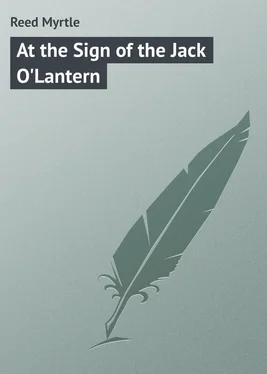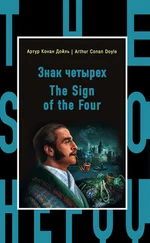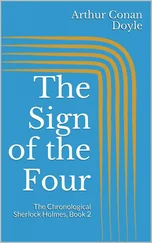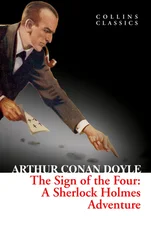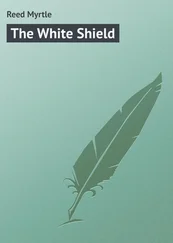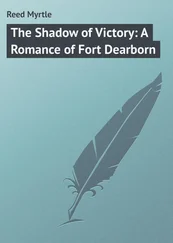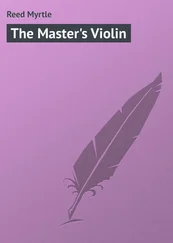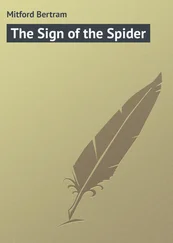Myrtle Reed - At the Sign of the Jack O'Lantern
Здесь есть возможность читать онлайн «Myrtle Reed - At the Sign of the Jack O'Lantern» — ознакомительный отрывок электронной книги совершенно бесплатно, а после прочтения отрывка купить полную версию. В некоторых случаях можно слушать аудио, скачать через торрент в формате fb2 и присутствует краткое содержание. Издательство: Иностранный паблик, Жанр: foreign_language, foreign_prose, foreign_humor, на английском языке. Описание произведения, (предисловие) а так же отзывы посетителей доступны на портале библиотеки ЛибКат.
- Название:At the Sign of the Jack O'Lantern
- Автор:
- Издательство:Иностранный паблик
- Жанр:
- Год:неизвестен
- ISBN:нет данных
- Рейтинг книги:5 / 5. Голосов: 1
-
Избранное:Добавить в избранное
- Отзывы:
-
Ваша оценка:
- 100
- 1
- 2
- 3
- 4
- 5
At the Sign of the Jack O'Lantern: краткое содержание, описание и аннотация
Предлагаем к чтению аннотацию, описание, краткое содержание или предисловие (зависит от того, что написал сам автор книги «At the Sign of the Jack O'Lantern»). Если вы не нашли необходимую информацию о книге — напишите в комментариях, мы постараемся отыскать её.
At the Sign of the Jack O'Lantern — читать онлайн ознакомительный отрывок
Ниже представлен текст книги, разбитый по страницам. Система сохранения места последней прочитанной страницы, позволяет с удобством читать онлайн бесплатно книгу «At the Sign of the Jack O'Lantern», без необходимости каждый раз заново искать на чём Вы остановились. Поставьте закладку, и сможете в любой момент перейти на страницу, на которой закончили чтение.
Интервал:
Закладка:
There was no book in the library which had not been read many times. Some were falling apart, and others had been carefully sewn together and awkwardly rebound. Still open, on a rickety table in the corner, was that ponderous volume with an extremely limited circulation: The Publishers’ Trade List Annual . Pencilled crosses here and there indicated books to be purchased, or at least sent on approval, to “customers known to the House.”
“Some day,” said Dorothy, “when it’s raining and we can’t go out, we’ll take down all these books, arrange them in something like order, and catalogue them.”
“How optimistic you are!” remarked Harlan. “Do you think it could be done in one day?”
“Oh, well,” returned Dorothy; “you know what I mean.”
Harlan paced restlessly back and forth, pausing now and then to look out of the window, where nothing much was to be seen except the orchard, at a little distance from the house, and Claudius Tiberius, sunning himself pleasantly upon the porch. Four weeks had been a pleasant vacation, but two weeks of comparative idleness, added to it, were too much for an active mind and body to endure. Three or four times he had tried to begin the book that was to bring fame and fortune, and as many times had failed. Hitherto Harlan’s work had not been obliged to wait for inspiration, and it was not so easy as it had seemed the day he bade his managing editor farewell.
“Somebody is coming,” announced Dorothy, from the window.
“Nonsense! Nobody ever comes here.”
“A precedent is about to be established, then. I feel it in my bones that we’re going to have company.”
“Let’s see.” Harlan went to the window and looked over her shoulder. A little man in a huge silk hat was toiling up the hill, aided by a cane. He was bent and old, yet he moved with a certain briskness, and, as Dorothy had said, he was inevitably coming.
“Who in thunder – ” began Harlan.
“Our first company,” interrupted Dorothy, with her hand over his mouth. “The very first person who has called on us since we were married!”
“Except Claudius Tiberius,” amended Harlan. “Isn’t a cat anybody?”
“Claudius is. I beg his imperial pardon for forgetting him.”
The rusty bell-wire creaked, then a timid ring came from the rear depths of the house. “You let him in,” said Dorothy, “and I’ll go and fix my hair.”
“Am I right,” queried the old gentleman, when Harlan opened the door, “in presuming that I am so fortunate as to address Mr. James Harlan Carr?”
“My name is Carr,” answered Harlan, politely. “Will you come in?”
“Thank you,” answered the visitor, in high staccato, oblivious of the fact that Claudius Tiberius had scooted in between his feet; “it will be my pleasure to claim your hospitality for a few brief moments.
“I had hoped,” he went on, as Harlan ushered him into the parlour, “to be able to make your acquaintance before this, but my multitudinous duties – ”
He fumbled in his pocket and produced a card, cut somewhat irregularly from a sheet of white cardboard, and bearing in tremulous autographic script: “Jeremiah Bradford, Counsellor at Law.”
“Oh,” said Harlan, “it was you who wrote me the letter. I should have hunted you up when I first came, shouldn’t I?”
“Not at all,” returned Mr. Bradford. “It is I who have been remiss. It is etiquette that the old residents should call first upon the newcomers. Many and varied duties in connection with the practice of my profession have hitherto – ” His eyes sought the portrait over the mantel. “A most excellent likeness of your worthy uncle,” he continued, irrelevantly, “a gentleman with whom, as I understand, you never had the pleasure and privilege of becoming acquainted.”
“I never met Uncle Ebeneezer,” rejoined Harlan, “but mother told me a great deal about him and we had one or two pictures – daguerreotypes, I believe they were.”
“Undoubtedly, my dear sir. This portrait was painted from his very last daguerreotype by an artist of renown. It is a wonderful likeness. He was my Colonel – I served under him in the war. It was my desire to possess a portrait of him in uniform, but he would never consent, and would not allow anyone save myself to address him as Colonel. An eccentric, but very estimable gentleman.”
“I cannot understand,” said Harlan, “why he should have left the house to me. I had never even seen him.”
“Perhaps,” smiled Mr. Bradford, enigmatically, “that was his reason, or rather, perhaps I should say, if you had known your uncle more intimately and had visited him here, or, if he had had the privilege of knowing you – quite often, as you know, a personal acquaintance proves disappointing, though, of course, in this case – ”
The old gentleman was floundering helplessly when Harlan rescued him. “I want you to meet my wife, Mr. Bradford. If you will excuse me, I will call her.”
Left to himself, the visitor slipped back and forth uneasily upon his haircloth chair, and took occasion to observe Claudius Tiberius, who sat near by and regarded the guest unblinkingly. Hearing approaching footsteps, he took out his worn silk handkerchief, unfolded it, and wiped the cold perspiration from his legal brow. In his heart of hearts, he wished he had not come, but Dorothy’s kindly greeting at once relieved him of all embarrassment.
“We have been wondering,” she said, brightly, “who would be the first to call upon us, and you have come at exactly the right time. New residents are always given two weeks, are they not, in which to get settled?”
“Quite so, my dear madam, quite so, and I trust that you are by this time fully accustomed to your changed environment. Judson Centre, while possessing few metropolitan advantages, has distinct and peculiar recommendations of an individual character which endear the locality to those residing therein.”
“I think I shall like it here,” said Dorothy. “At least I shall try to.”
“A very commendable spirit,” rejoined the old gentleman, warmly, “and rather remarkable in one so young.”
Mrs. Carr graciously acknowledged the compliment, and the guest flushed with pleasure. To perception less fine, there would have been food for unseemly mirth in his attire. Never in all her life before had Dorothy seen rough cow-hide boots, and grey striped trousers worn with a rusty and moth-eaten dress-coat in the middle of the afternoon. An immaculate expanse of shirt-front and a general air of extreme cleanliness went far toward redeeming the unfamiliar costume. The silk hat, with a bell-shaped crown and wide, rolling brim, belonged to a much earlier period, and had been brushed to look like new. Even Harlan noted that the ravelled edges of his linen had been carefully trimmed and the worn binding of the hat brim inked wherever necessary.
His wrinkled old face was kindly, though somewhat sad. His weak blue eyes were sheltered by an enormous pair of spectacles, which he took off and wiped continually. He was smooth-shaven and his scanty hair was as white as the driven snow. Now, as he sat in Uncle Ebeneezer’s parlour, he seemed utterly friendless and forlorn – a complete failure of that pitiful type which never for a moment guesses that it has failed.
“It will be my delight,” the old man was saying, his hollow cheeks faintly flushed, “to see that the elite of Judson Centre pay proper respect to you at an early date. If I were not most unfortunately a single gentleman, my wife would do herself the honour of calling upon you immediately and of tendering you some sort of hospitality approximately commensurate with your worth. As it is – ”
“As it is,” said Harlan, taking up the wandering thread of the discourse, “that particular pleasure must be on our side. We both hope that you will come often, and informally.”
Читать дальшеИнтервал:
Закладка:
Похожие книги на «At the Sign of the Jack O'Lantern»
Представляем Вашему вниманию похожие книги на «At the Sign of the Jack O'Lantern» списком для выбора. Мы отобрали схожую по названию и смыслу литературу в надежде предоставить читателям больше вариантов отыскать новые, интересные, ещё непрочитанные произведения.
Обсуждение, отзывы о книге «At the Sign of the Jack O'Lantern» и просто собственные мнения читателей. Оставьте ваши комментарии, напишите, что Вы думаете о произведении, его смысле или главных героях. Укажите что конкретно понравилось, а что нет, и почему Вы так считаете.
